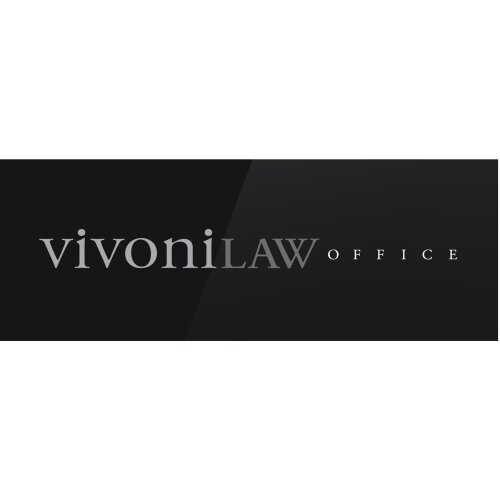Best Intellectual Property Lawyers in Puerto Rico
Share your needs with us, get contacted by law firms.
Free. Takes 2 min.
Or refine your search by selecting a city:
List of the best lawyers in Puerto Rico
About Intellectual Property Law in Puerto Rico
Intellectual Property (IP) in Puerto Rico is an essential area of law that protects the creations of inventors, authors, and businesses through various legal mechanisms. As a U.S. territory, Puerto Rico adheres to federal IP laws, including patents, trademarks, and copyrights, along with some local adaptations. The goal of IP law is to ensure that individuals and businesses can protect their innovations, maintain their competitive edge, and gain recognition or financial benefits. Understanding the nuances of both federal and local IP laws is crucial for effectively safeguarding one's intellectual property in Puerto Rico.
Why You May Need a Lawyer
There are numerous situations where an individual or business may require legal assistance in the realm of intellectual property. Such situations include:
- Filing for patents or trademarks to protect an invention or brand.
- Dealing with copyright issues related to original creative works.
- Addressing IP infringement disputes either as a plaintiff or a defendant.
- Negotiating licenses and agreements involving IP assets.
- Understanding the implications of using IP owned by others.
- Protecting trade secrets and confidential information from unauthorized use.
- Managing IP portfolios for businesses to maximize their value.
Local Laws Overview
While Puerto Rico follows U.S. federal laws for most intellectual property matters, there are key local aspects to consider:
- Trademarks: Besides federally registered trademarks, Puerto Rico has its unique system for registering trademarks locally.
- Cultural Heritage: Specific protections are in place for local cultural expressions and folklore within intellectual property considerations.
- Language Requirements: Legal documents, filings, and procedures might require translation to meet local language standards.
- Commercial Practices: IP laws are designed to complement local commercial practices and reflect the market dynamics specific to Puerto Rico.
Frequently Asked Questions
What is intellectual property?
Intellectual property refers to creations of the mind, such as inventions, literary and artistic works, designs, symbols, and names used in commerce. It encompasses patents, trademarks, copyrights, and trade secrets.
Are Puerto Rican IP laws different from U.S. laws?
Primarily, Puerto Rico adheres to U.S. federal laws regarding IP, but there are certain local regulations and adaptations, especially for trademarks and cultural heritage.
How can I protect my invention in Puerto Rico?
You can apply for a U.S. patent, which automatically extends to Puerto Rico, to protect your invention from being made, used, sold, or distributed without your consent.
What does a trademark protect?
A trademark defends brand names, slogans, and logos used on goods and services, distinguishing them from those of competitors.
Can I register a trademark locally in Puerto Rico?
Yes, alongside the federal trademark registration, you can register a trademark specifically in Puerto Rico to gain additional protection within the territory.
What is copyright, and how does it work in Puerto Rico?
Copyright is a legal right that provides creators of original works exclusive rights to use and distribute their creations. In Puerto Rico, U.S. federal copyright laws apply.
What are trade secrets, and how can they be protected?
Trade secrets are practices, designs, formulas, processes, or any information that provides a business edge. Protection involves implementing confidentiality agreements and data security measures.
How do I handle an IP infringement case?
Consulting with an experienced attorney is crucial. They can help in assessing the infringement, initiating legal action, and seeking appropriate remedies or settlements.
How long does IP protection last?
Duration varies: patents typically last 20 years, trademarks can last indefinitely with renewals, and copyright generally lasts the life of the author plus 70 years.
What steps should I take if I want to license my IP?
Engage with a lawyer to prepare a legally sound licensing agreement that outlines terms, conditions, rights, and obligations for both parties involved.
Additional Resources
For further information and assistance, consider reaching out to the following resources:
- U.S. Patent and Trademark Office (USPTO): Provides comprehensive resources on federal IP laws and procedures.
- Puerto Rico Trademark Office: Handles local trademark registrations.
- Local Bar Associations: Can help in finding specialized IP lawyers in Puerto Rico.
- Cultural Heritage Departments: For guidance on protecting indigenous and folkloric expressions.
Next Steps
If you need legal assistance in IP matters, consider the following steps:
- Compile all relevant documentation and evidence related to your IP issues.
- Research and identify lawyers or firms specializing in IP law in Puerto Rico.
- Schedule consultations to discuss your situation and assess the lawyer’s expertise and compatibility with your needs.
- Discuss potential strategies, associated costs, and timelines to attain the best protection or resolution for your IP concerns.
Being proactive and informed when seeking legal counsel can greatly enhance your ability to protect and manage your intellectual property effectively.
Lawzana helps you find the best lawyers and law firms in Puerto Rico through a curated and pre-screened list of qualified legal professionals. Our platform offers rankings and detailed profiles of attorneys and law firms, allowing you to compare based on practice areas, including Intellectual Property, experience, and client feedback.
Each profile includes a description of the firm's areas of practice, client reviews, team members and partners, year of establishment, spoken languages, office locations, contact information, social media presence, and any published articles or resources. Most firms on our platform speak English and are experienced in both local and international legal matters.
Get a quote from top-rated law firms in Puerto Rico — quickly, securely, and without unnecessary hassle.
Disclaimer:
The information provided on this page is for general informational purposes only and does not constitute legal advice. While we strive to ensure the accuracy and relevance of the content, legal information may change over time, and interpretations of the law can vary. You should always consult with a qualified legal professional for advice specific to your situation.
We disclaim all liability for actions taken or not taken based on the content of this page. If you believe any information is incorrect or outdated, please contact us, and we will review and update it where appropriate.
Browse intellectual property law firms by service in Puerto Rico
Puerto Rico Attorneys in related practice areas.
Browse intellectual property law firms by city in Puerto Rico
Refine your search by selecting a city.









